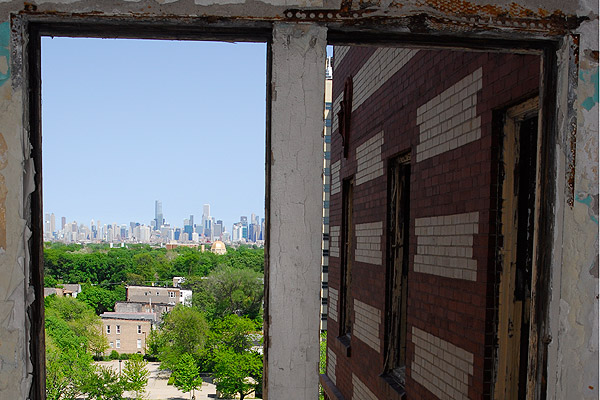
* Paul Tough, a contributing writer to the New York Times Magazine, wrote one of the best pieces on new approaches to poverty (specifically, approaching it as a public-health problem) I've read in awhile: "The Poverty Clinic" (scroll down) for the New Yorker last year. He's back with another excellent piece that raises, and also tries to answer, a question that's been on the minds of a lot of people: why isn't Obama saying anything about poverty, and is he actually doing anything about it? Tough begins in Roseland and expands outward to Obama's presidency, raising points I touched on about the changing nature of welfare a little while back.
And while it is true that the Census Bureau’s official poverty figures have grown steadily worse under Obama, rising to 15.1 percent of Americans under the poverty line in 2010 from 13.2 percent in 2008, those dismal numbers come with a significant caveat. When government statisticians calculate the poverty rate, they include only cash income. And over the last two decades, and especially during the Obama administration, the way the federal government gives aid to poor people has shifted away from cash transfers toward noncash transfers — food stamps, Medicaid subsidies, housing vouchers — none of which are included in a family’s income for the purposes of poverty statistics. If you do count food stamps and other noncash aid, the poverty rate has, according to some calculations, not gone up much at all during the Obama administration, during the worst economic crisis in 70 years. That is a remarkable accomplishment. When I asked William Julius Wilson last month for his thoughts on the current administration’s antipoverty efforts, he said that Obama had “done more for lower-income Americans than any president since Lyndon Baines Johnson.”
Tough seems implicitly critical of the administration's lack of a "sustained committment," to use the president's own words, and the kind of deep, comprehensive targeting he found in researching "The Poverty Clinic"; he mentions only the administration's controversial education policies as another front in its approach to poverty. But the administration's focus on its signature accomplishment, health care reform, is important: antipoverty programs cost money, and checking the rise in the government's health-care costs are necessary to free up space in a tight budget (besides its immediate effects on the lower-middle-class and impoverished Americans).
Anyway, it's a thoughtful piece that puts the administration's successes and failures with regards to poverty in historical context—both America's and Obama's.
* Megan Cottrell has a piece on an odd, frustrating fight between a Section 8 recipient, a 52-year-old grandmother who works two jobs and is trying to stay in her home, and… well, it's kind of hard to tell. It's also difficult to summarize: she leased a house on which the mortgage hadn't been paid; the lawyer of its owners didn't tell her when it went into foreclosure (which is legal outside of the city); and got evicted when Freddie Mac took over the house. It's hard enough to fight the bureaucracy; what do you do when you don't know which bureaucracy to fight?
The whole problem was a bit maddening to Coleman. Freddie Mac is owned by the government, the taxpayers. Housing subsidies are paid by the government, the taxpayers. Couldn't these two organizations just put their heads together and work out something, instead of paying lawyers to evict her?
Short answer, no. And she had to hire a lawyer.
* On the other side of the financial spectrum, here's the latest from MF Global and its missing $1 billion:
After 10 months of stitching together evidence on the firm’s demise, criminal investigators are concluding that chaos and porous risk controls at the firm, rather than fraud, allowed the money to disappear, according to people involved in the case.
In other words, MF Global's bet went bad and they threw whatever money they could find at it—and if it's determined that they had no idea whose money it was, it's not criminal. There's still a Chicago-based employee who could be a target, but she won't talk without immunity.
Photograph: nitram242 (CC by 2.0)


